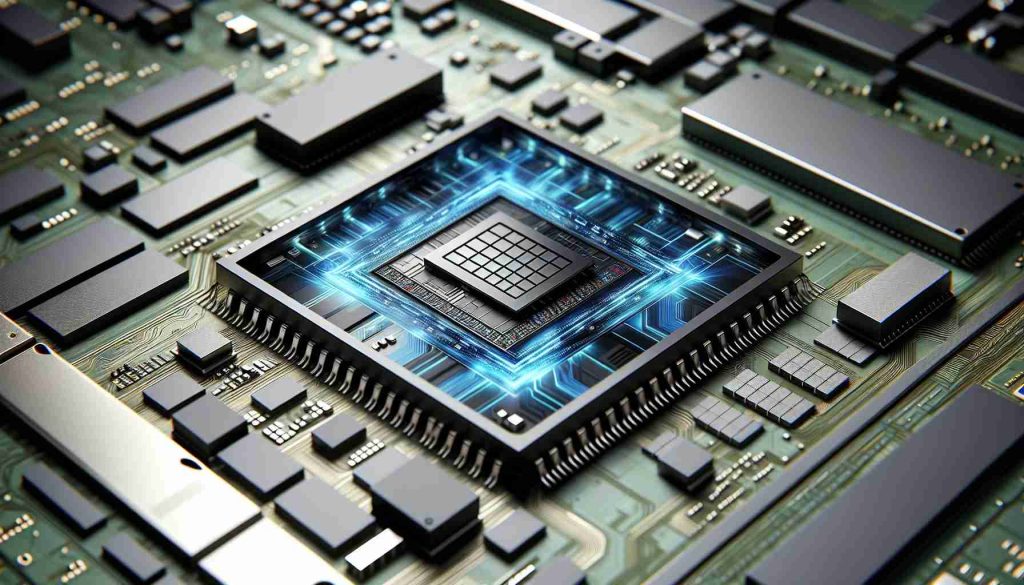A major development has unfolded in the global tech industry as Taiwan Semiconductor Manufacturing Company (TSMC), the leader in high-tech chip manufacturing, makes a pivotal decision. Following the surprising discovery that one of its cutting-edge chips ended up in the hands of Huawei, a Chinese telecommunications giant currently facing U.S. sanctions, TSMC is taking decisive action.
The situation arose when a TSMC-designed chip, made for use in advanced processors, was traced back to Huawei from a Chinese customer’s order. This unexpected delivery occurred despite stringent regulations and agreements aiming to prevent such occurrences. TSMC is now halting shipments of its most sophisticated chips to China and is meticulously reviewing pending orders to ensure compliance with international and U.S. trade laws.
TSMC, a pivotal supplier for leading tech firms worldwide, fabricates microscopic semiconductors—devices essential not just for mobile phones but also for state-of-the-art artificial intelligence systems and electronics. The company manufactures these semiconductors based on precise designs provided by their clients, who then distribute the finished products to end-users.
For years, the U.S. government has been orchestrating efforts to curtail the flow of these advanced technologies to Chinese firms, citing national security concerns and potential military applications. Prohibitions have included preventing American corporations like Nvidia from selling AI-centric chips to China, and persuading Japanese and Dutch companies to halt sales of specialized chip-making machines to Chinese entities.
The world now watches as TSMC navigates this geopolitical landscape, with potential repercussions for the global tech supply chain.
Unexpected Chip Fiasco Sparks Global Tech Concerns: How the TSMC Decision Impacts Us All
Introduction
In the fast-evolving tech landscape, supply chain disruptions have wide-reaching effects. The recent decision made by Taiwan Semiconductor Manufacturing Company (TSMC) not only highlights critical geopolitical tensions but also presents new dilemmas and challenges for industries, communities, and countries reliant on advanced semiconductor technology.
Beyond the Headlines
With TSMC ceasing shipments of its pioneering chips to China, several vital aspects emerge that have not been in the spotlight. One significant outcome is the potential for escalating trade tensions between Taiwan and China. This move by TSMC extends beyond a mere company decision, potentially straining Taiwan’s relationship with China due to the latter’s increasing reliance on Taiwanese technology.
Furthermore, the semiconductor industry—already stretched thin from supply chain bottlenecks—faces the possibility of further disruptions. This could lead to shortages in consumer electronics, automotive technology, and cutting-edge AI applications worldwide. As TSMC reviews its orders meticulously, any delays in production could cause ripple effects across multiple sectors.
Impact on Everyday Life and Communities
Globally, consumers could see delays in the latest tech gadgets or increased prices due to constrained supplies. Tech companies may face challenges in innovating without the latest semiconductor components, affecting everything from smartphones to smart home devices. Communities with economies heavily tied to semiconductor technology might experience sudden economic shifts, prompting concerns over job security and economic stability.
Intriguing Developments and Debate
This latest event feeds into a broader discussion about the geopolitical implications of technological supremacy. Should nations pursue technological independence to mitigate similar risks? Is it ethical to isolate certain countries from advanced tech resources when interconnected global collaboration could foster innovation and peace?
On the one hand, pros of TSMC’s decision include enhanced control over their products, potential alignment with international trade laws, and contributing to preventing potential military uses of cutting-edge technologies. On the other hand, cons might involve strained international relations, potential loss of revenue, and disruption to numerous industries and sectors dependent on these semiconductors.
Common Questions and Informed Insights
– Q: How does this decision impact technology users?
A: Users might encounter slower innovation cycles for their devices and could experience supply-based price increases in electronics.
– Q: Is technological decoupling feasible?
A: While it might offer control and security, the global tech ecosystem’s interconnectedness makes complete decoupling challenging and potentially detrimental to innovation and economic growth.
Explore Further
For those interested in learning more about global tech geopolitics, trade impacts, and the role of semiconductors in the modern world, consider exploring these resources:
– TSMC
– Gartner
– Financial Times
Conclusion
As TSMC maneuvers through these challenges, all eyes remain on how this will further shape the dynamics of the global tech landscape. While seeking a balance between national security and technological advancement, stakeholders must also consider the overarching consequences on the world economy, tech innovation, and international relations. Such developments emphasize the intricate web of global connections in today’s digital age, reminding us of the complex dance between innovation, commerce, and politics.























